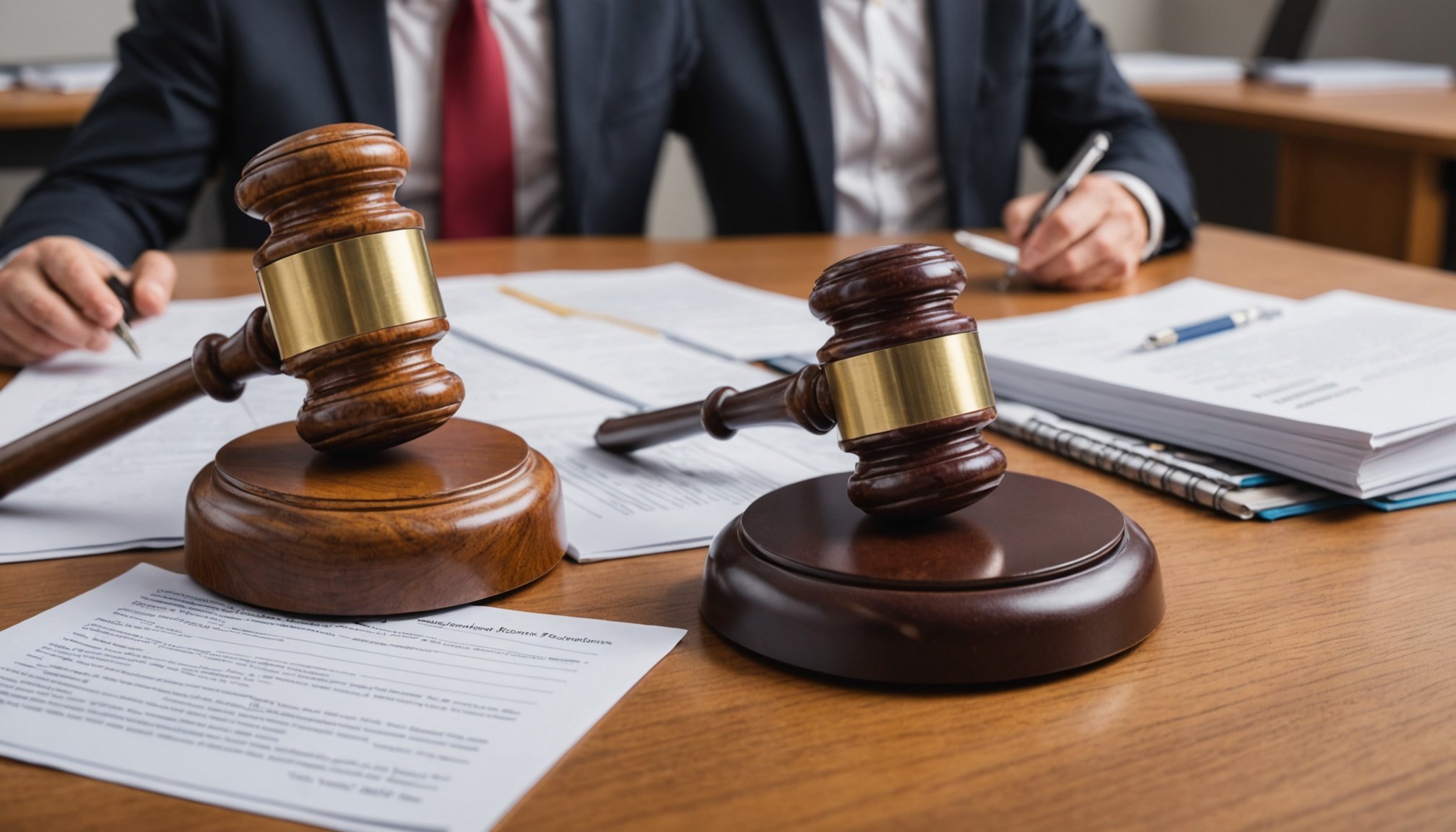Overview of the Consumer Protection Act 1987
The Consumer Protection Act 1987 forms a crucial part of the UK legal framework, establishing the rights and safeguards for consumers while defining the obligations of enterprises. Introduced in response to increasing awareness of consumer rights during the late 20th century, the Act’s primary purpose is to ensure that products are safe for use and consumers are protected from harm.
At its core, the Act delineates the responsibility of producers and distributors for the safety of their goods. It encompasses a wide range of products, demanding that manufacturers and suppliers guarantee the safety and quality of their offerings. Key terms within the Act, such as “producer” and “defective product,” are precisely defined to avoid any ambiguity regarding enterprise obligations.
In the same genre : Ultimate legal handbook for uk enterprises: mastering global patent registration strategies
For UK enterprises, understanding and adhering to the Consumer Protection Act is critical, as non-compliance can result in liability for damages caused by defective products. This law emphasizes the need for thorough product testing and transparent communication with consumers.
For consumers, the Act serves as a protective measure, ensuring that they can trust the products available in the market. This UK legal framework boosts consumer confidence and promotes fair competition among businesses, ultimately fostering a safer and more secure marketplace.
In the same genre : Unlocking compliance: a detailed guide to key legal duties for uk businesses under the 2011 waste regulations
Key Legal Responsibilities of UK Enterprises
Navigating the legal landscape is essential for enterprises in the UK. Understanding their legal responsibilities and how to ensure compliance with them is critical.
Duty of Care
One major responsibility is the duty of care. This entails ensuring that all aspects of the business operations are conducted responsibly, particularly regarding product safety. For instance, businesses must engage in thorough risk assessment processes to identify and mitigate potential hazards. Conducting regular evaluations and maintaining high safety standards are vital components of fulfilling this duty.
Product Liability
Product liability is another crucial area under the Act. Defined as the legal responsibility for any product defects that cause harm, it underscores the importance of diligent quality control. In cases where liability for defective products arises, companies may face significant claims. Situations could include anything from a faulty appliance causing injury to a car part leading to accidents. Understanding and managing these liabilities is paramount for compliance and maintaining trust.
Consumer Rights and Recourse
Enterprises also need to consider the consumer rights enshrined in the Act. These rights grant consumers ways to report defects and unsafe products efficiently. It is the role of businesses to address consumer complaints proactively, ensuring customers have recourse and satisfying their legal obligations. Efficient processes for handling these issues can enhance consumer trust and strengthen business-consumer relationships.
Compliance Strategies for Businesses
Navigating the complex world of compliance is essential for businesses aiming to maintain legal adherence and effective risk management. Implementing structured strategies can greatly reduce potential liabilities and enhance operational efficiency.
Best Practices for Compliance
- Conduct Regular Product Audits: Regularly assessing your product offerings ensures they meet safety and legal standards. This practice helps in early detection of risks.
- Train Staff on Consumer Protection Issues: Equipping your team with knowledge on consumer rights is vital. Training empowers employees to adhere confidently to compliance protocols.
- Implement Robust Quality Control Measures: Rigorous quality control eliminates discrepancies, ensuring that products conform to outlined standards.
Documentation and Record-keeping
Documenting compliance efforts is not just a best practice but a necessity.
- Importance of Maintaining Compliance Records: Accurate record-keeping is crucial for evidencing adherence and defending against claims.
- Essential Documents for Product Safety and Liability: Include safety certificates, audits, and inspection reports.
- Tips for Efficient Documentation Management: Utilize digital solutions for seamless storing and retrieval of records.
Engaging with Legal Expertise
- Role of Legal Consultants in Compliance: They provide invaluable insights into complex regulations.
- Benefits of Proactive Legal Support: Seeking advice before issues arise can prevent costly legal battles.
- Importance of Staying Updated on Legislative Changes: Regular updates enable businesses to swiftly adapt to new laws.
Legal Ramifications for Non-compliance
Ignoring compliance can lead to severe legal consequences, impacting brand reputation and business operations. Non-compliant businesses can face different penalties, which can be a significant burden.
Types of Penalties
Companies may encounter civil and criminal penalties, with notable fines and sanctions. Civil penalties often involve financial restitution, while criminal penalties could lead to severe repercussions, such as imprisonment for responsible individuals. For example, businesses like XYZ Corp have faced legal actions due to blatant non-compliance.
Impact on Business Reputation
A failure to adhere to compliance standards can be damaging to brand trust. Customer loyalty suffers as news of non-compliance spreads. For instance, companies in the tech sector witnessed noticeable decreases in consumer trust because of their non-compliance issues. Strategies to recover include transparent communication and proactive compliance measures.
Long-term Business Implications
There’s an ongoing risk of litigation and financial liability for those ignoring compliance. Companies should adopt sustainable compliance practices to mitigate these risks. Non-compliance can further disrupt business operations and strategy, leading to potential instability. The focus on long-term compliance ensures operations are smooth and in line with legal expectations. Sustainable compliance supports business stability and growth over time.
Guidance on Consumer Claims
Navigating the maze of consumer claims can be challenging, yet understanding your options and rights awareness is crucial. Below are insights into how consumers can effectively manage complaint resolution and achieve satisfactory outcomes.
How Consumers Can File Claims
Filing a consumer claim often requires a methodical approach. Begin by clearly documenting your issue, gathering all associated evidence, and consulting available resources such as consumer advice services. Various organisations offer support, aiding in navigating the process smoothly.
Consumers typically face challenges such as complex procedures or unresponsive parties. However, remaining persistent and informed can greatly assist in addressing these hurdles.
Role of Regulatory Bodies
Regulatory bodies in the UK, like the Competition and Markets Authority and Trading Standards, play a pivotal role in overseeing consumer protection. They provide guidance, mediate disputes, and sometimes enforce compliance, ensuring businesses adhere to fair practices.
These bodies collaborate with businesses to rectify issues, highlighting the importance of maintaining clear communication and cooperation.
Tips for Businesses in Handling Claims
Businesses should employ best practices to streamline complaint resolution. Creating an open, transparent communication channel and training staff in customer service are paramount. This proactive approach not only aids in resolving issues swiftly but also fosters consumer trust and loyalty.











